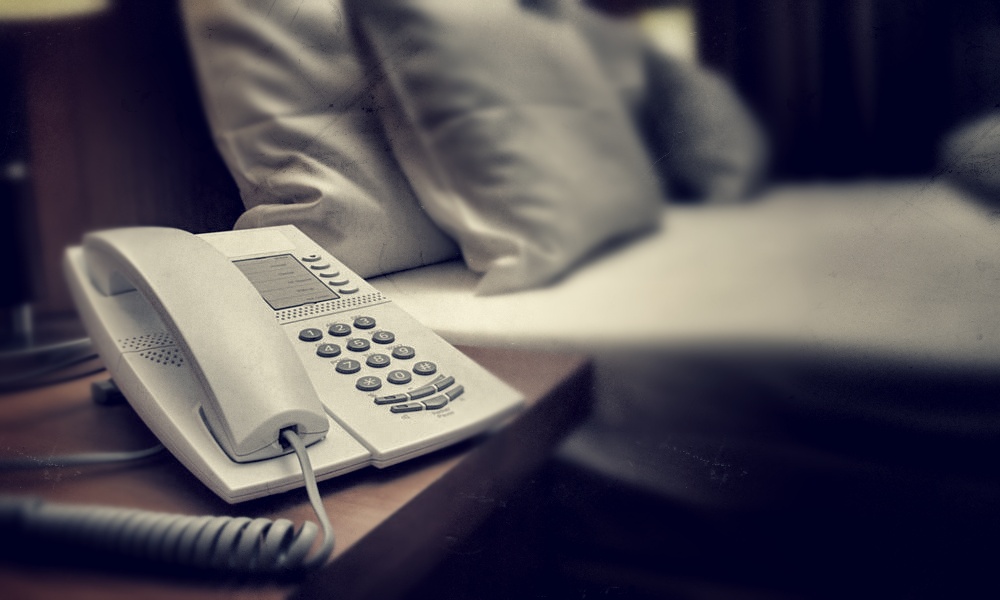
Progress From Tragedy: 911 Campaign Gains Momentum
A young mother's murder in a hotel room last month—a tragedy complicated by a phone system which required callers to dial an extra "9" when dialing 911—has legislators, regulators, and an emergency number group working to change the way hotel phones work.
A young mother’s murder in a hotel room last month—in which the phone system requirement that callers dial “9” before dialing 911 slowed the police response—has legislators, regulators, and an emergency number group calling for change.
In an emergency, kids are taught to call 911 and tell the operator what happened.
But a Texas case in which a child did just that—and was prevented from reaching an emergency dispatcher by the phone system in a hotel where her mother was being attacked—has activists, along with an association focused on emergency calls, pushing the hotel industry to modernize its systems. More details:
The situation: On December 1, Texas resident Kari Hunt Dunn took her three children to a local hotel to visit their father, her estranged husband, Brad Allen Dunn. According to authorities, the visit turned violent: He allegedly stabbed his wife in the bathroom while their children were in the other room. The couple’s 9-year-old daughter tried to call 911 but didn’t know that the hotel phone required first dialing an additional number to reach an outside line. She made four unsuccessful attempts to dial 911. “Papa, I tried, but I couldn’t do it,” the girl later told her grandfather, Hank Hunt. The children ran into the hallway and got someone to call for help, but Kari Hunt Dunn died from her injuries. Brad Allen Dunn fled the hotel, taking his 4-year-old daughter; he was later captured by police and is being held on $5 million bond, facing murder charges. (The 4-year-old, who was the subject of an Amber Alert, was recovered without incident.)
Pushing for change: In the days after the incident took place, Hunt launched a Change.org campaign pushing for passage of “Kari’s Law,” which would require hotels and motels to make it easier to dial 911 by making the dial-out digit “8” instead of “9.” “We are attempting to ensure that any person needing police, EMS, or the fire department at any hotel or motel location may be able to dial the numbers 911 and receive emergency response,” Hunt wrote. “In a panic, any underage child, or for that matter anyone in an emergency situation, should be able to depend on dialing 911 from any phone in the United States and receiving assistance.”
Association views: The National Emergency Number Association has recommended this sort of upgrade for years. “In this case, a little girl did everything she had been taught to do. She did everything right,” Trey Forgety, NENA director of government affairs, told Al Jazeera America. “She had no way of knowing that there was a code she had to dial. And something very tragic happened. That’s the kind of situation that we’re working to prevent.” American Hotel and Lodging Association safety and security consultant Chad Callahan argued that a new law is not necessary but that other questions should be addressed—such as whether the phone system would inform the front desk of an emergency so that hotel staff could respond quickly. “Working together on these things, hotels can be reasonable about it,” he told the Associated Press.
Since Hunt launched the campaign on December 17, more than 425,000 people have signed the petition. The campaign also has drawn significant political support, with Rep. Louie Gohmert (R-TX) considering legislation and Federal Communications Commissioner Ajit Pai announcing an investigation [PDF] into the issue, including inquiries to 10 major hotel chains, to determine what steps need to be taken.
While the hotel where Dunn was killed has yet to change its system due to technical issues, management says it’s working on solving the problem.
(iStock/Thinkstock)






Comments